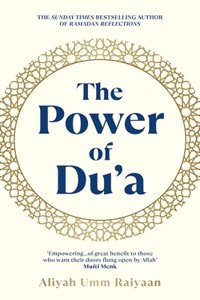Only logged in customers who have purchased this product may leave a review.
Sale!
Religious Interactions in Modern India (Hardback) | Released: 01 Oct 2019
By: Vasudha Dalmia (Author) Publisher: OUP India26.00% Off Original price was: 1,295.00$.958.00$Current price is: 958.00$.
You save 337.00$
Religions in South Asia have tended to be studied in blocks, whether in the various monolithic traditions in which they are now regarded, thus Hindu, Muslim, Buddhist, Sikh, Jain, Christian, or indeed in temporal blocks: ancient, medieval, modern. This volume seeks to look at relationships both within and between religions.... Read More
In stock
Ships within 1-2 Business Days

100% Orginal Books

Easy Replacement

Certified product

Secure Checkout

On time delivery
Author:
![]()
Vasudha Dalmia
Publisher Name:
![]()
OUP India
Language:
![]()
English
Binding:
![]()
(Hardback)
About The Book
Religions in South Asia have tended to be studied in blocks, whether in the various monolithic traditions in which they are now regarded, thus Hindu, Muslim, Buddhist, Sikh, Jain, Christian, or indeed in temporal blocks: ancient, medieval, modern. This volume seeks to look at relationships both within and between religions. It explores the diversity and the multiplicity within each tradition, the historical links between the various traditions which have crisscrossed the monoliths, but also the specific forms of their co-existence with each other, whether in accord or in antagonism. It views the interaction between 'reformed' and non-reformed branches within each of the modern monoliths, as for instance the Arya Samaj and the Sanatani positions within Hinduism. Its second major concern is to look for grounds shared in the process of modernizing. Though there has been much research to date on religious reform movements, there has been less concern with investigating and analyzingdevelopments across the religious boundaries that so sharply divide Hinduism, Sikhism, Buddhism and Islam from each other today, and all of these from Christianity. And finally, it also looks at the changing social and political frames of reference shared by both religious and secularist strands of thought. The 'religions' targeted include Hindu discourses (Brahmo, Arya, Sanatana, and various traditional formations, the Aryan/Dravidian divide), Buddhist, Jain, Sikh and Islamic traditions, and Indian Christianity.About the Author: Martin Fuchs, Professor, Max-Weber-Kolleg Universitat Erfurt, Vasudha Dalmia, Professor Emerita, University of California, Berkeley, USA. Martin Fuchs holds the Professorship for Indian Religious History at the Max-Weber-Kolleg (Max Weber Centre forAdvanced Cultural and Social Studies), University of Erfurt (Germany), and is member of the M.S. Merian - R. TagoreInternational Centre of Advanced Studies in the Humanities and Social Sciences 'Metamorphoses of the Political'(ICAS: MP) in Delhi (India). Trained in Anthropology and Sociology he previously taught at the Universities of Zuerich (Switzerland), Heidelberg and Paderbor (Germany), Free University Berlin, Central European University, Budapest (Hungary), and University of Canterbury in Christchurch (New Zealand). His research interests include cultural and social theory, urban anthropology, social movements, Dalit studies and religious individualization; his regional focus is on India Vasudha Dalmia is Professor Emerita, Department of South and Southeast Asian Studies, University of California, Berkeley, USA.










Reviews
There are no reviews yet.